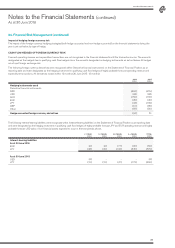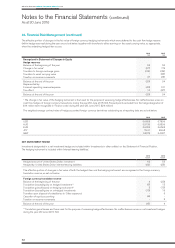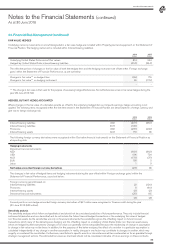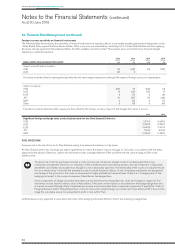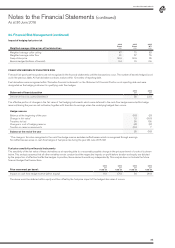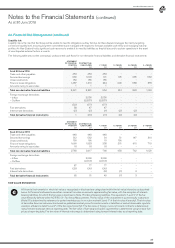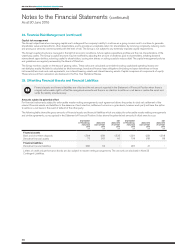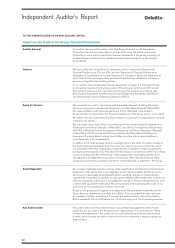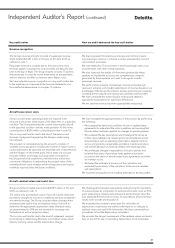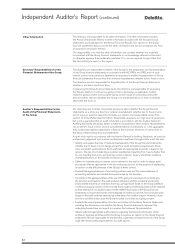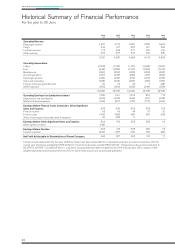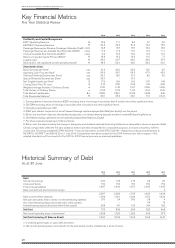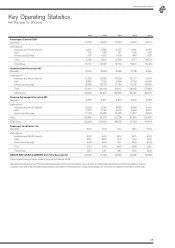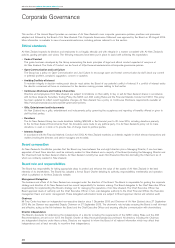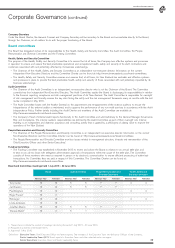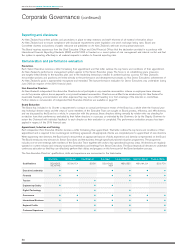Air New Zealand 2016 Annual Report Download - page 42
Download and view the complete annual report
Please find page 42 of the 2016 Air New Zealand annual report below. You can navigate through the pages in the report by either clicking on the pages listed below, or by using the keyword search tool below to find specific information within the annual report.
Independent Auditor’s Report
TO THE SHAREHOLDERS OF AIR NEW ZEALAND LIMITED
Report on the Audit of the Group Financial Statements
Auditor General The Auditor-General is the auditor of Air New Zealand Limited and its subsidiaries.
The Auditor-General has appointed me, Andrew Dick, using the staff and resources
of Deloitte, to carry out the audit of the financial statements of the Group, consisting of
Air New Zealand Limited and its subsidiaries (collectively referred to as ‘the Group’),
on her behalf.
Opinion We have audited the Group financial statements, which comprise the Statement of
Financial Position as at 30 June 2016, and the Statement of Financial Performance,
Statement of Comprehensive Income, Statement of Changes in Equity and Statement of
Cash Flows for the year then ended, and notes to the financial statements, including a
summary of significant accounting policies.
In our opinion, the accompanying financial statements, on pages 2 to 39, present fairly,
in all material respects, the financial position of the Group as at 30 June 2016, and its
financial performance and its cash flows for the year then ended in accordance with
New Zealand Equivalents to International Financial Reporting Standards (‘NZ IFRSs’)
and International Financial Reporting Standards (‘IFRS’).
Basis for Opinion We conducted our audit in accordance with the Auditor-General’s Auditing Standards,
which incorporate the International Standards on Auditing (New Zealand) (‘ISAs (NZ)’).
Our responsibilities under those standards are further described in the Auditor’s
Responsibilities for the Audit of the Financial Statements of the Group section of our report.
We believe that the audit evidence we have obtained is sufficient and appropriate to provide
a basis for our opinion.
We are independent of the Group in accordance with the Auditor-General’s Statement on
Professional and Ethical Standard 1 (Revised) Code of Ethics for Assurance Practitioners
(‘AG PES 1 (Revised)’) which incorporates Professional and Ethical Standard 1 (Revised)
Code of Ethics for Assurance Practitioners issued by the New Zealand Auditing and
Assurance Standards Board, and we have fulfilled our other ethical responsibilities in
accordance with these requirements.
In addition to the audit we have carried out assignments in the areas of taxation, review of
the interim financial statements and other assurance and non-assurance services, which
are compatible with those independence requirements. In addition to these assignments,
principals and employees of our firm deal with the Group on normal terms within the ordinary
course of trading activities of the Group. These assignments and trading activities have
not impaired our independence as auditor of the Group. Other than the audit and these
assignments and trading activities, we have no relationship with, or interests in the Group.
Audit Materiality We consider materiality primarily in terms of the magnitude of misstatement in the financial
statements of the Group that in our judgement would make it probable that the economic
decisions of a reasonably knowledgeable person would be changed or influenced (the
‘quantitative’ materiality). In addition, we also assess whether other matters that come to our
attention during the audit would in our judgement change or influence the decisions of such
a person (the ‘qualitative’ materiality). We use materiality both in planning the scope of our
audit work and in evaluating the results of our work.
Based on our professional judgement, we determined the quantitative materiality for the
Group financial statements as a whole to be $30m. This was determined with reference
to a number of factors and taking into account the cyclical nature of the airline industry.
$30m represents 5% of profit before tax, 1% of total equity and 1% of operating revenue.
Key Audit matters Key audit matters are those matters that, in our professional judgement, were of most
significance in our audit of the Group financial statements for the current period. These
matters were addressed in the context of our audit of the Group financial statements as
a whole, and in forming our opinion thereon, and we do not provide a separate opinion on
these matters.
40



